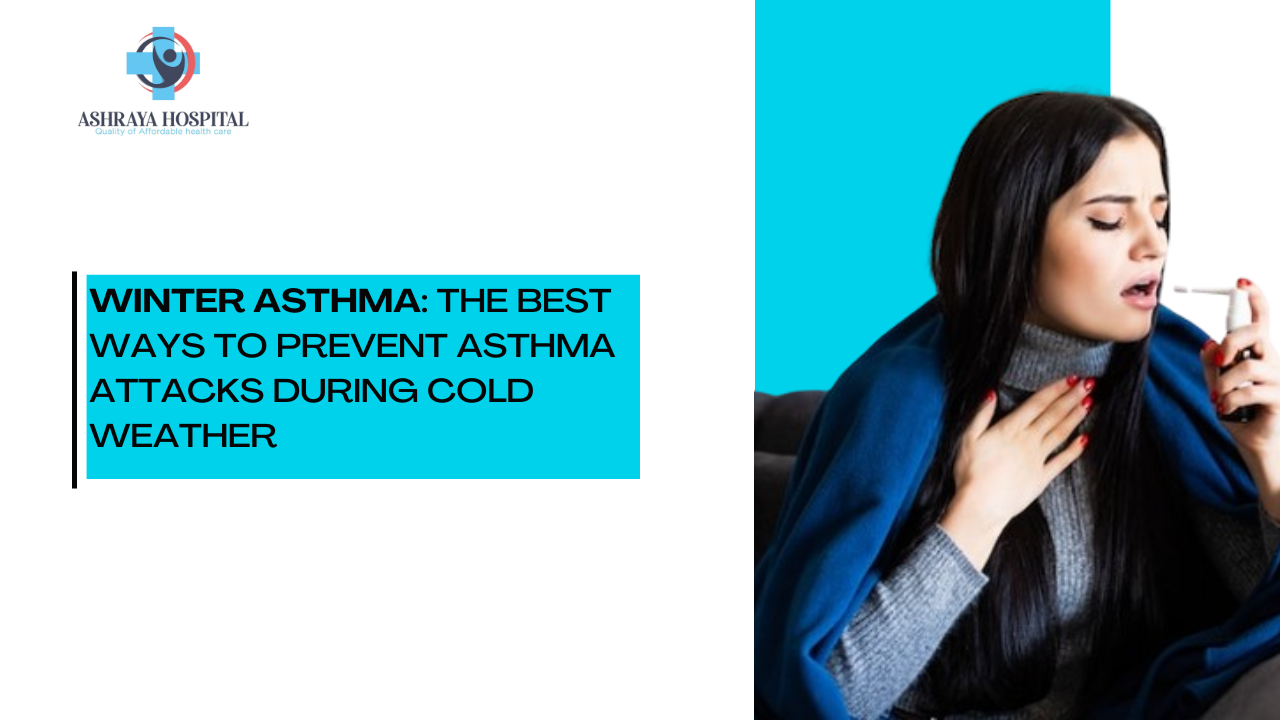



The first winter air blows through the trees and makes you feel the season's magic. Chilly and cosy nights can be exciting, but this is only true for some. Winters can be a hard time for people living with asthma. Asthma is a chronic condition in which airways become inflamed, narrow, and swell to produce extra mucus, making breathing difficult. Cold, dry air and sudden changes in the weather can irritate your airways and trigger asthma attacks.
Cold weather in winter can flare up asthma attack symptoms that can become uncontrolled. Read on to explore the symptoms of asthma attacks and how to find relief.
Asthma symptoms are usually the same as those seen during the warmer months. However, they are much worse in intensity. Asthma attack symptoms occur often and are more difficult to control during winter. Some of the common asthma attack symptoms include the following:
Asthma cannot be prevented entirely, but your doctor can design a plan to help you live with the condition and prevent severe asthma attacks. Some of the preventive measures include:
1. Follow Your Asthma Action Plan
Asthma is a chronic condition that needs regular monitoring and treatment. Your doctor and healthcare team can design an appropriate treatment plan by prescribing necessary medications. Do not stop or change your medications even if your asthma is improving.
2. Get Vaccinated
Regular vaccinations can prevent flu and influenza, reducing your risk of asthma flare ups.
3. Avoid Asthma Attack Triggers
Specific outdoor allergens and irritants can trigger asthma attacks. Thus, limit being outdoors in the cold weather to minimise the triggers.
4. Avoid Mouth Breathing
Breathing through your nose is recommended since the nasal passages warm the air before it enters your lungs. Breathing through your mouth can dry the air, irritating your airways.
Suffering from asthma does not mean you cannot enjoy the season. You can follow some useful tips to help avoid asthma attacks during winter.
1. Limit Exposure
If you have a persistent cough or other symptom flareup, stay indoors and limit your outdoor time.
2. Always Carry Your Inhaler
Make sure you have your inhaler accessible with you all the time, whether indoors or outdoors. Failure to do so can worsen your asthma attack symptoms.
3. Take Your Meds Regularly
Always remember to take your meds and refill your inhaler when required. Do not skip your dose.
4. Stay Hydrated
Drink a lot of water, soups, broths, and decaffeinated drinks to keep yourself hydrated.
5. Follow Personal Hygiene
Always wash your hands with soap and water, especially after staying outdoors. Avoid people with viral infections to reduce your risk of flare ups.
6. Dress Up Warmly
Use a scarf to cover your head and nose when you are outdoors. This makes the air you breathe a little less cold and dry.
7. Use a Humidifier
Using a humidifier, especially at night, can add a little moisture to the winter air and keep you comfortable.
8. Limit Exercise
Limit physical activity when outdoors since it may narrow your airways.
9. Seek Medical Help
If you are prone to asthma attacks, visit your doctor regularly during winter for further help.
Uncontrolled asthma flare ups may require the following treatment:
Asthma can be debilitating if not controlled or managed appropriately. The asthma attack symptoms can worsen during winter, and if left untreated, uncontrolled asthma can cause long-term damage to your lungs. Thus, taking the necessary preventive measures to avoid asthma attacks is essential. Following specific beneficial trips can be a game changer to help you sail through winters.
If your asthma symptoms are not improving, contact us for the best pulmonology services at Ashraya Hospital, Pune. Our dedicated team of doctors offers a comprehensive approach to dealing with uncontrolled asthma attack symptoms through advanced technology and treatment options that best suit your needs.